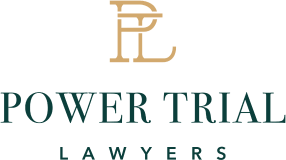- Free Consultation: (213) 800-7664 Tap Here to Call Us
The Impact of Assembly Bill 333 (AB 333) on Sentences–Gang Enhancements
Recently, California lawmakers passed Assembly Bill 333, which is just one of the recent criminal justice reforms targeting the state’s outdated sentencing laws. Assembly Bill 333 specifically takes aim at one of the most used sentencing enhancements in courts across California—the gang enhancement under California Penal Code § 186.22.
What Is California Assembly Bill 333 and What Does It Do?
California Assembly Bill 333, commonly referred to as AB 333, is a piece of legislation that was enacted to reform aspects of California’s criminal justice system, specifically focusing on gang enhancements and the criteria for determining what constitutes a “criminal street gang” under the terms of the law. The bill was introduced by State Senator Sydney Kamlager and amends California Penal Code § 186.22.
There are several key provisions of AB 333, which include:
Gang Enhancement Reforms
One of the central aspects of AB 333 is the reform of the state’s gang enhancement laws. Gang enhancements are additional penalties that are added to a criminal sentence if the crime is determined to be gang-related. AB 333 modifies the criteria for applying these enhancements. More specifically, the bill makes it more difficult for prosecutors to prove that a crime was committed to benefit a gang, requiring additional evidence that connects the crime to gang activity. Thus, as a result of AB 333, it is almost certain that there will be fewer gang enhancements in the future.
Redefining Criminal Street Gangs
Assembly Bill 333 also changes the definition of a criminal street gang. The new definition requires that the group is
an ongoing, organized organization or group of 3 or more persons, whether formal or informal, having as one of its primary activities the commission of one or more of the enumerated criminal acts, having a common name or common identifying sign or symbol, and whose members collectively engage in, or have engaged in, a pattern of criminal gang activity.
Previously, a criminal street gang was defined as
an ongoing organization, association, or group of 3 or more persons, whether formal or informal, having as one of its primary activities the commission of one or more of the enumerated criminal acts, having a common name or common identifying sign or symbol, and whose members individually or collectively engage in, or have engaged in, a pattern of criminal gang activity.
There are two key differences. First is the addition of the word “organized,” which previously wasn’t a part of the definition. Historically, prosecutors argued that any group of friends—even in the absence of an official “gang name”—constitutes a criminal street gang. This led to a vast number of enhancements that were based on thin evidence of gang-related activity.
The second was the removal of the word “individually.” Under AB 333, prosecutors must establish that the group it’s arguing was a gang worked together to commit the specified crimes, rather than individual group members all committing specified crimes on their own.
Moreover, AB 333 removes several criminal offenses from the list of “enumerated offenses,” which can trigger the gang enhancement. For example, looting, felony vandalism, and specified personal identity fraud can no longer serve as the basis for a gang enhancement under AB 333.
Separate Trials
AB 333 also allows for the possibility of separate trials when gang enhancements are involved. This means that the question of whether the crime was gang-related can be determined in a separate trial, apart from the trial that determines guilt for the underlying criminal act. This aims to prevent the gang allegation from unduly influencing the jury’s decision on the crime itself.
Again, this may not sound as important as it is in reality. The issue with the prior law was that jurors could hear all evidence related to a defendant’s gang membership, casting them in a negative light. Thus, when it came time to consider the prosecution’s evidence as it relates to the crimes charged, jurors would have an incredibly difficult time separating what they had already heard about the defendant’s activities.
Impact on Prosecutions and Sentencing
The changes brought about by AB 333 can significantly impact how gang-related cases are prosecuted and sentenced in California. It may lead to fewer gang enhancements being applied and may change the approach of prosecutors in gang-related cases.
Overall, AB 333 represents a significant shift in California’s approach to handling crimes alleged to be gang-related, reflecting a broader trend toward criminal justice reform in the state. The bill aims to ensure that gang enhancements are applied more judiciously and based on more concrete evidence rather than on broad or vague criteria.
What Constitutes Gang-Related Activity Under AB 333?
With the passage of AB 333, the prosecution must prove the following to establish a gang enhancement under § 186.22:
- The crimes charged and proven showed a pattern of criminal gang activity; and
- The crimes benefitted a criminal street gang in some more than just a reputational advantage or benefit.
AB 333 adds important clarification to what type of benefit the crime must have provided to a group in order for the gang enhancement to apply. This was in direct response to prosecutors’ common tactic of claiming that a boost to a group’s “image” constituted a “benefit” under § 186.22, which had become accepted by the courts. However, a reputational benefit will no longer be sufficient to establish the applicability of a gang enhancement.
Who Can Benefit from AB 333?
AB 333 applies to anyone who has a case that is not yet considered “final.” This means that anyone on trial for gang-related crimes, as well as those who have not yet exhausted their appeals. However, other than this, AB 333 is not retroactive. Thus, inmates who are serving sentences from years past (whose convictions became final prior to the passage of AB 333) are not entitled to relief under AB 333.
However, there is an important caveat to this. California lawmakers have previously passed several laws that are tangentially related to AB 333 and allow inmates to pursue other forms of resentencing relief, such as AB 2942 (allowing the court to grant a defendant’s request for a resentencing hearing when they obtain a recommendation from the district attorney of the county where they were convicted). In an AB 2942 petition filed under § 1172.1, one of the criteria set forth in the statute is whether the defendant’s continued incarceration is in the interests of justice. Further, this includes an analysis of any “evidence that reflects that circumstances have changed since the original sentencing so that continued incarceration is no longer in the interest of justice.” Thus, although some inmates may not be able to directly benefit from AB 33, they may be able to argue that their continued incarceration is no longer in the interests of justice because the California sentencing laws have changed since they were sentenced.
Are You Interested in Learning More About the Impact of AB 333?
If you or a loved one is currently incarcerated, and a gang enhancement comprises a part of your sentence, you may have options to reduce your sentence or obtain a resentencing hearing. At Power Trial Lawyers, our Los Angeles criminal appeals attorneys have experience aggressively pursuing resentencing hearings and other forms of relief on behalf of our incarcerated clients. To learn more, and to speak with a Los Angeles AB 333 attorney today, call Power Trial Lawyers at 213-800-7664. You can also reach out to us through our secure online contact form.


















